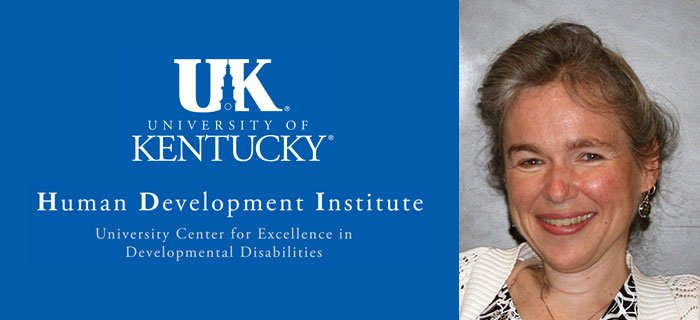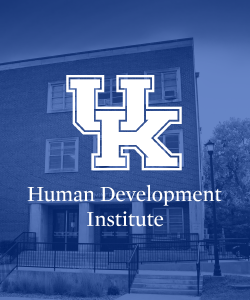We are excited to share that the University of Kentucky Office of the Vice President for Research has appointed Dr. Kathy Sheppard-Jones as the new director of the Human Development Institute (HDI), a University Center for Excellence in Developmental Disabilities (UCEDD) at UK.
Dr. Sheppard-Jones received her Ph.D. in educational psychology from UK in 2002 and has worked with HDI since 1996. She previously served as training director for the institute. In that role, she built relationships with faculty and staff across colleges at UK and beyond. In addition to her director responsibilities, Sheppard-Jones is also principal investigator across a variety of grants and contracts around quality supports for people through the lifespan. She is currently an adjunct professor in the Department of Early Childhood, Special Education and Rehabilitation Counseling.
”HDI promotes the inclusion, independence and contributions of people with disabilities across the lifespan,” said Vice President for Research Dr. Lisa A. Cassis. “As one of 67 UCEDD programs across the nation, this mission is accomplished through research, education, information sharing, leadership and advocacy – across the Commonwealth and the nation. With 45 projects and over 200 staff, Dr. Sheppard-Jones’ background and experience building interdisciplinary collaboration will ensure HDI is part of the research agenda that improves life outcomes for all Kentuckians and particularly addresses disparities for those with disabilities.”
“I’m extremely honored to be HDI’s Executive Director,” Dr. Sheppard-Jones said.”We have huge challenges ahead of us, but I cannot imagine a better team of dedicated and innovative professionals, self-advocates and families with whom to share this journey. Together, we will forge ahead to promote a society that is inclusive for all, and help to erase health disparities for Kentuckians with disabilities. The University of Kentucky is an environment that will enable us to conduct state of the art translational research, provide training to interdisciplinary students who will be the leaders of tomorrow, and collaborate with communities to demonstrate service models that result in meaningful life outcomes.”
See article in UKNow.



